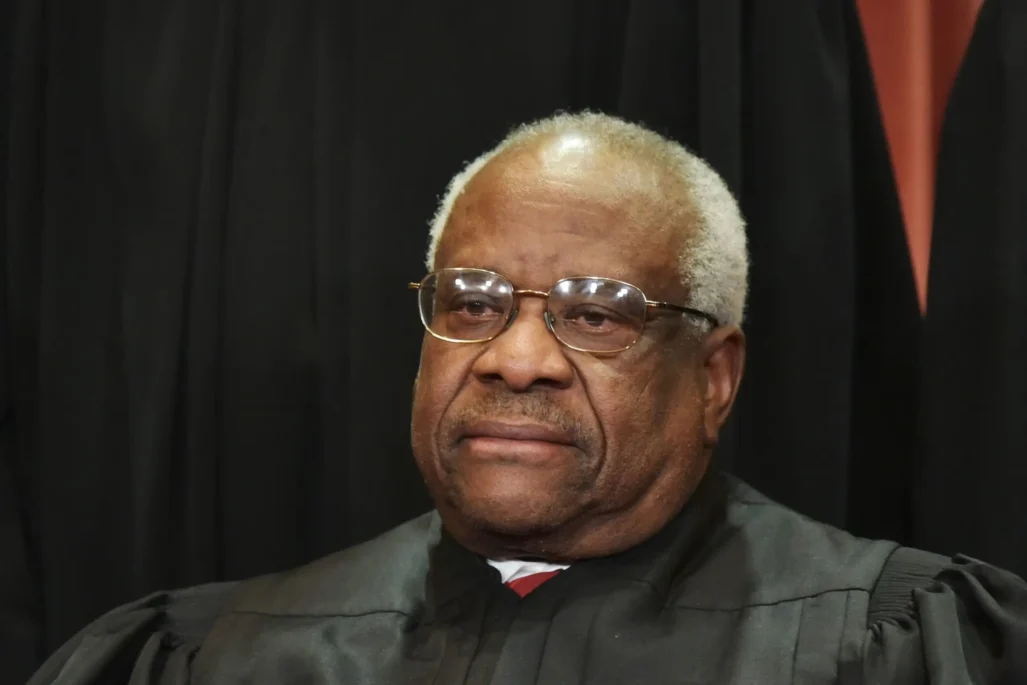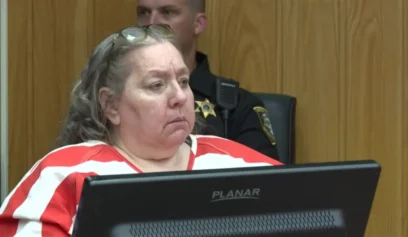Amid last week’s 70th anniversary of the landmark Brown v. Board of Education U.S. Supreme Court ruling, Supreme Court Justice Clarence Thomas recently expressed a potent critique of the ruling that ended racial segregation in schools, resulting in many critics denouncing him on social media.
Thomas, the Black conservative who currently is the longest-serving justice on the high court, implied Thursday in a concurring opinion upholding a contested congressional district map in South Carolina that the court had exceeded its powers in the historic verdict that prohibited racial segregation in schools.

Seventy years ago, the Supreme Court ruled that racial segregation of children in public schools was unconstitutional, paving the way for desegregation in schools across the country. However, the Brown v. Board of Education case in 1954 didn’t immediately result in school desegregation in many states. Court battles and in some cases direct federal intervention ensued as many Southern states were resistant to integrating schools.
Thomas formed part of a 6-3 conservative majority in the Alexander v. South Carolina NAACP ruling that permitted South Carolina to continue using a congressional map accused of racial discrimination against Black voters. The 75-year-old used his concurrent opinion to launch a critique against the Brown ruling.
The high court “took a boundless view of equitable remedies” in the Brown ruling, wrote Thomas, who has been under fire for his refusal to recuse himself from cases related to the Jan. 6, 2021, Capitol riot. More than 1,200 individuals have been indicted for their attempts to overturn President Joe Biden’s victory over former President Donald Trump in the 2020 presidential election.
The court invented an illegitimate new “flexible power to invent whatever new remedies may seem useful at the time,” Thomas wrote, saying those remedies came through “extravagant uses of judicial power” to end racial segregation in the 1950s and 1960s.
Thomas also expressed his desire to eliminate the federal courts’ jurisdiction over allegations of racial gerrymandering, writing, “Drawing political districts is a task for politicians, not federal judges,” and the process of analyzing district maps for evidence of racial bias is “demeaning to the courts asked to perform it, to say nothing of the black voters that it stereotypes.”
“The view of equity required to justify a judicial map-drawing power emerged only in the 1950s,” he also wrote.
Justice Samuel Alito wrote the majority opinion in the May 23 ruling that significantly limiting courts’ ability to overturn racial gerrymanders.
“Where race and politics are highly correlated, a map that has been gerrymandered to achieve a partisan end can look very similar to a racially gerrymandered map. … Without an alternative map, the court also found it difficult for plaintiffs to defeat the starting presumption that the legislature acted in good faith,” Alito wrote.
Thomas echoed those sentiments.
“A colorblind Constitution does not require that racial considerations ‘predominate’ before subjecting them to scrutiny,” Thomas wrote. “Nor does it tolerate group wide judgments about the preferences and beliefs of racial minorities. It behooves us to abandon our misguided efforts and leave districting to politicians.”
Following Thomas’ comments about Brown v. Board of Education, lawmakers and other users on X blasted him.
“Clarence Thomas is a disgrace, and I cannot ever overstate that,” Florida state Rep. Ashley V. Gantt, a Miami Democrat, said on social media platform X. A person commented under Gantt’s post, saying, “I cannot overstate how much I agree with you!!”
“Clarence Thomas attacking the Brown decision from Thurgood Marshall’s Supreme Court seat is the nastiest of work,” Vincent wrote on X. “That man is despicable.”
“Clarence Thomas is a textbook case of a self-hating Black man,” Allison Wiltz Psy.M. posted. “There should be an entire college course created that uses his career as a case study on this phenomenon.”


